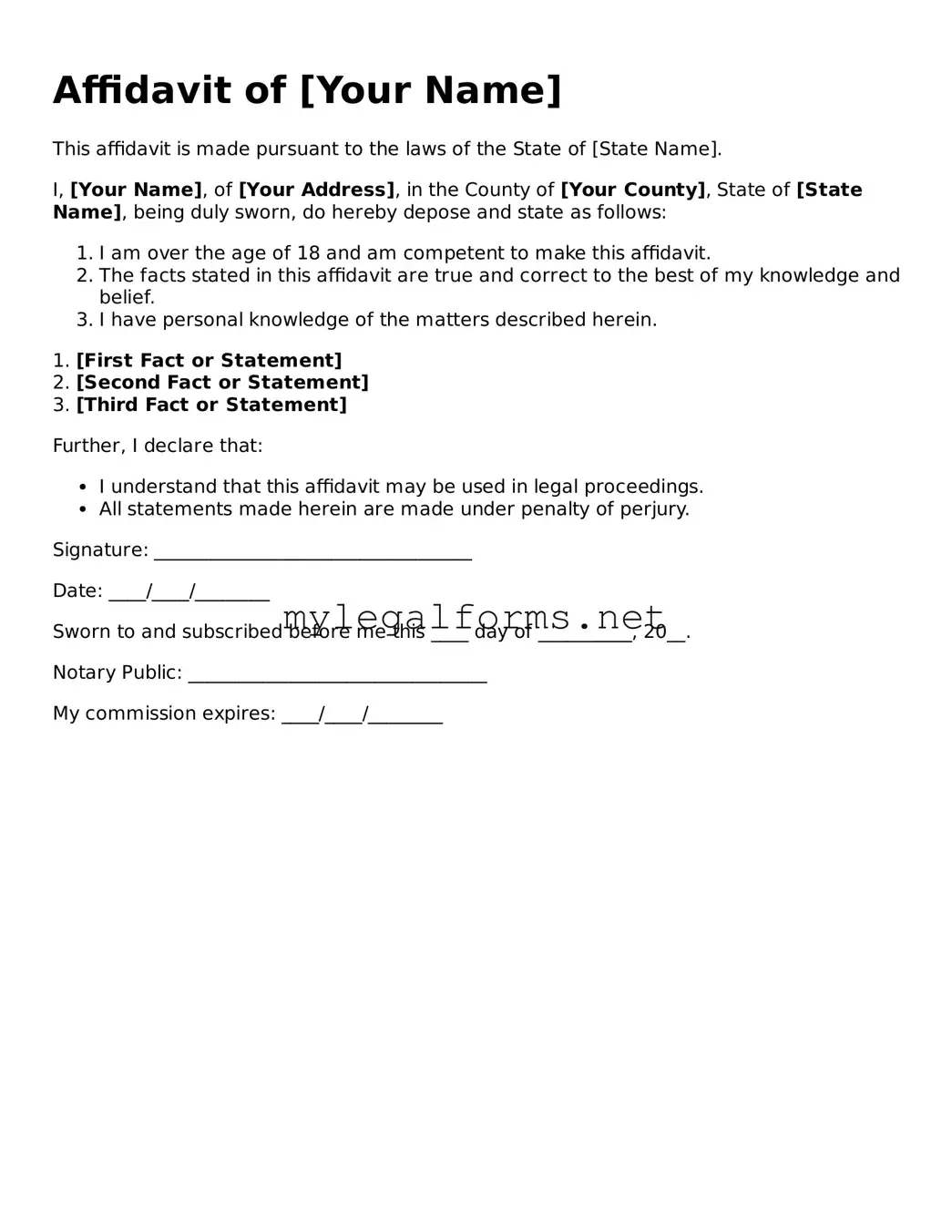Attorney-Approved Affidavit Form
An affidavit is a written statement made under oath, used as evidence in legal proceedings. This document serves to affirm the truth of the information contained within it, providing a reliable account when required by the court. Understanding how to properly complete an affidavit form is essential for anyone involved in legal matters.
Launch Affidavit Editor

Attorney-Approved Affidavit Form
Launch Affidavit Editor

Launch Affidavit Editor
or
⇓ PDF Form
Complete the form at your pace — fast
Finish your Affidavit online and download the final version.